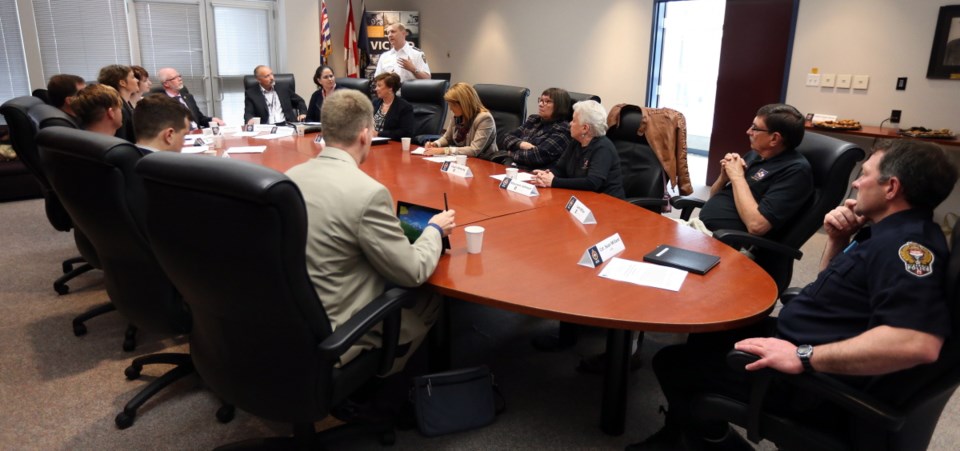A victim and offender were brought to the same table Tuesday in an assault case that turned into an example of how restorative justice can give both parties a chance to repair their lives.
Peter Stocker was working as commissionaire on May 28, 2013, and was in the process of giving a man a parking ticket, when Steve began to berate and throw a traffic cone at him. Steve, who asked to go by a different name to protect his identity, left the scene. Stocker reported the incident to Victoria police, and Steve was later arrested and charged with assault.
As the case proceeded through the legal system, Crown prosecutors asked Stocker if he would consider solving the matter through restorative justice, which involves an informal face-to-face meeting between the victim and offender.
Stocker agreed and was able to hear what was going on in Steve’s life that sent him over the edge that day.
In the traditional court system, Stocker said, “you may not find the whole story. You may not even find the crumbs.”
Steve, who lives with a brain injury related to a car accident when he was a child, has also struggled with bipolar disorder and alcohol addiction. He said he was sleep-deprived that day and the parking ticket incident sent him into a state of hypermania, which eventually led to him being committed to a psychiatric ward.
Steve thought of how an assault charge might affect the rest of his life: he would likely lose the ability to volunteer with vulnerable people and people with mental illness, which was a passion of his. He jumped at the chance to make amends to Stocker in person.
Restorative Justice Victoria organized a meeting last month, where the two met along with lawyers and volunteers. Steve apologized. Stocker forgave. The two set up a plan for Steve to do volunteer work helping people with mental-health issues.
“It gave me an opportunity to apologize and regain my sanity, literally,” Steve said.
Stocker and Steve told their story at a roundtable meeting Tuesday organized by Victoria police, Restorative Justice Victoria and Greater Victoria Police Victims’ Services to mark National Victims of Crime Awareness Week.
Gillian Lindquist, co-ordinator of Restorative Justice Victoria, said more than half of the organization’s cases are referred by police but Crown prosecutors also have the power to refer cases, either to divert people from the court system or to run parallel to the court process.
Steve, who is now a fourth-year university student, said taking ownership of his crimes gave him a reason not to reoffend.
“And I haven’t got a parking ticket since,” he quipped.



